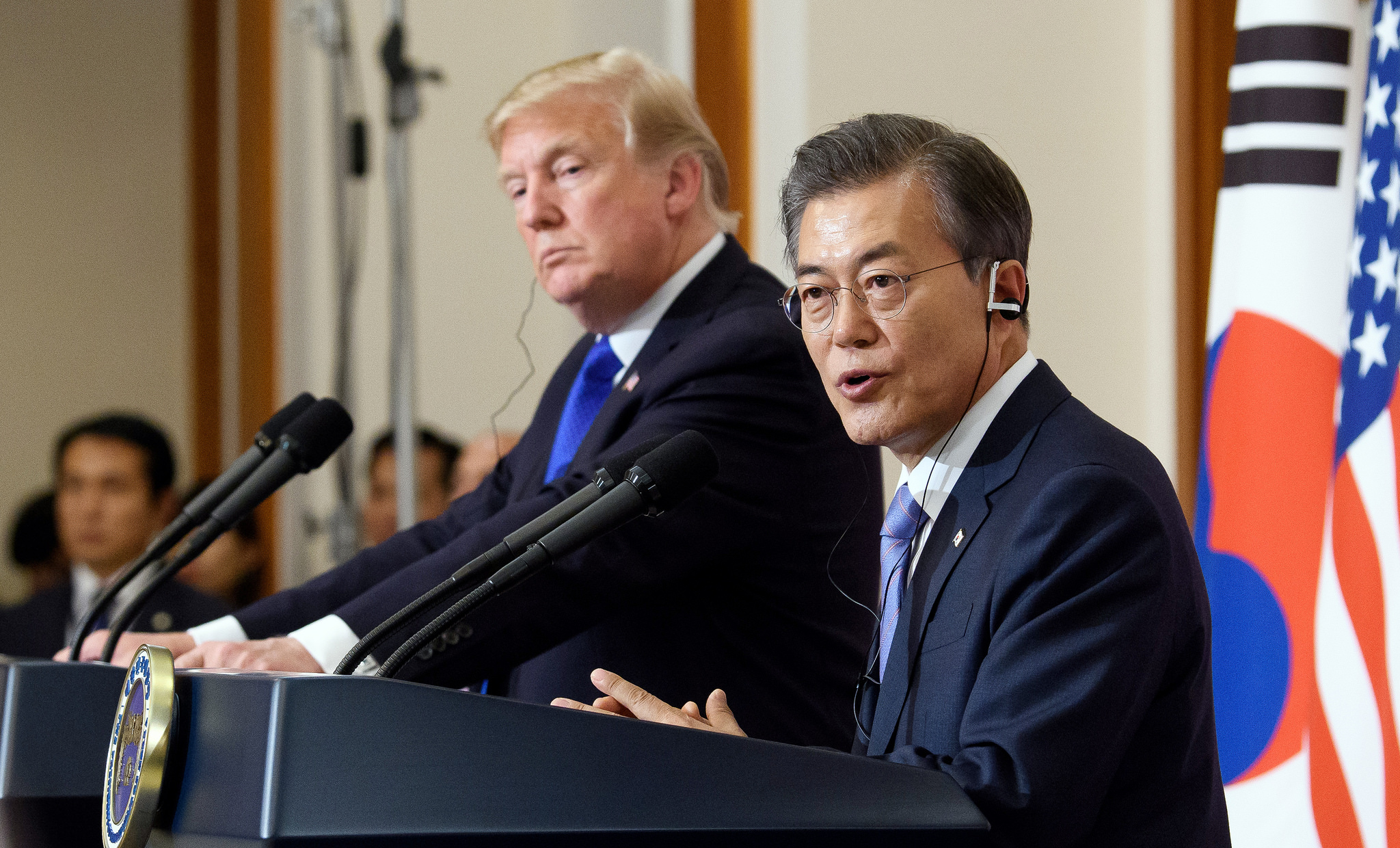No matter your political persuasion, we all woke up to good news this morning.
The leaders of North and South Korea agreed on Friday to work to remove all nuclear weapons from the Korean Peninsula and, within the year, pursue talks with the United States to declare an official end to the Korean War, which ravaged the peninsula from 1950 to 1953.
At a historic summit meeting, the first time a North Korean leader had ever set foot in the South, the leaders vowed to rid the divided Korean Peninsula of nuclear weapons and negotiate a treaty to replace the truce that has kept an uneasy peace for more than six decades. A peace treaty has been one of the incentives North Korea has demanded in return for bargaining away its nuclear weapons.
Of course, all of the caveats apply. There is still a long way to go for this advancement to come to fruition. But beyond being good news for both Democrats and Republicans, the people who have the most cause to celebrate are those who live on the Korean peninsula—especially in the North where even military officers are apparently suffering from starvation.
Even so, the race to politicize these events and take credit has begun. Trump’s aides and his enablers are lining up to give the U.S. president all the credit with rumblings underway about a possible Nobel Peace prize.
When will we see the headline: “Trump Ends the Korean War”? Unlike Obama, he actually deserves the Nobel Peace Prize. @realDonaldTrump
— Laura Ingraham (@IngrahamAngle) April 27, 2018
White House aide 10 days ago told me that if the Trump-Kim Jong Un talks lead to a thaw between US and North Korea, which at points last year seemed at brink of war, president and Kim both deserve to win the Nobel Peace Prize.
The idea is taking hold.https://t.co/7lgFjbgOov pic.twitter.com/jlE2E1QsCa
— Jennifer Jacobs (@JenniferJJacobs) April 27, 2018
Anyone who lived through the break-up of the Soviet Union is probably experiencing a healthy dose of déjà vu. Ronald Reagan spoke some tough words about the USSR (while continuing to negotiate nuclear arms agreements with his counterparts) and during the administration of his successor, George H.W. Bush, the Soviet Union dissolved. The mythology took hold almost immediately in this country that Reagan beat the Soviets and won the Cold War. None of that takes into consideration the roll that involvement in Afghanistan took on our opponent, the role of President Mikhail Gorbachev, or the challenges posed by the Baltic states.
I can’t speak to the whole of U.S. history, but at least as long as I’ve been alive, most citizens have made the mistake of assuming that our country is the sole actor for good on the planet. We rarely take account of how foreign affairs are impacted by the people and leaders of other countries. That is one of the ways that “American exceptionalism” plays out. It explains why so few people ever understood how partnership was at the root of Barack Obama’s foreign policy. He was willing to act and take leadership, but he knew that success came from working in partnership with our allies, and even sometimes our opponents.
So while I’ll celebrate if this news from Korea holds out through implementation, it feels inevitable that Donald Trump will take all of the credit—and it is very likely that the media and much of the American public will allow that myth to flourish, regardless of how the facts emerge.



